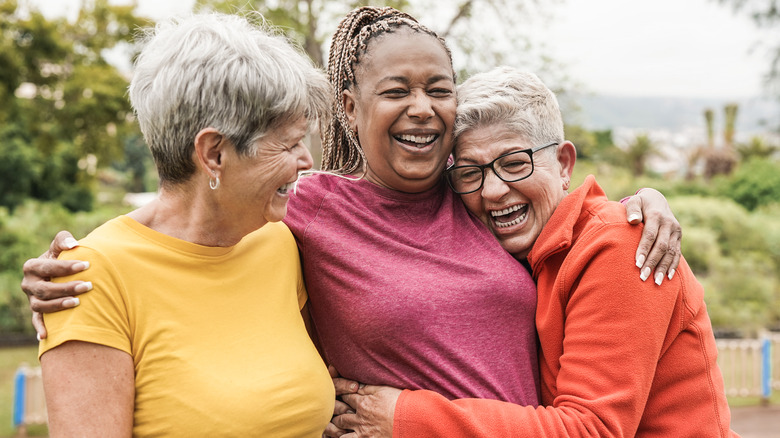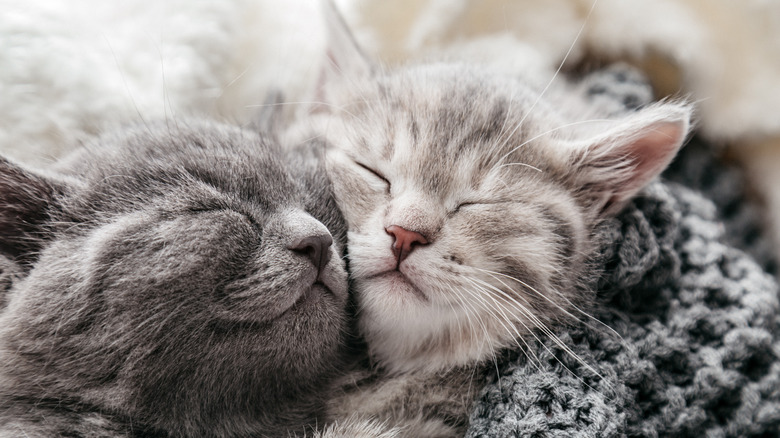
If you had never heard of the concept of touch starvation before the pandemic, it’s almost certain you’ve heard of it since COVID first began requiring quarantines and lockdowns, during which people stayed away from each other for longer periods of time than most had in their entire lives. The Texas Medical Center says that widespread touch starvation has become a direct consequence of the social distancing that people have been engaging in to remain safe during the pandemic.
So what exactly is touch starvation? According to Healthline, we as human beings are wired neurologically to want to touch and be touched by other people. It is innate within us to want to greet loved ones by touching them in some way, often with a hug. When we go extended periods of time without touching another person, it can have direct negative consequences on our mental, emotional, and possibly even physical health.
The sensation of being hugged or gently touched, for instance, can immediately lower stress levels and release oxytocin, the love hormone. When we go extended periods of time without any of this, anxiety, depression, and stress (which can affect everything from heart rate to blood pressure) increase.
Solutions for touch starvation

While the obvious solution is to reach out and hug someone, that isn’t always safe or possible right now. In the event thats getting more physical contact with fellow humans is not something you can do, there are other ways to increase oxytocin, lower stress, and feel less alone.
One way to lower stress and increase oxytocin is to play and cuddle with your pets (via WebMD). Even though they aren’t human, studies have shown that the companionship of pets is positive for both our mental and physical health; cat purrs can even directly lower blood pressure! Another option is to dance and sing while alone in your house. While it might sound silly, both of these things are also shown to increase oxytocin levels, making you feel happier and less stressed out.
A weighted blanket is also a great idea. Weighted blankets mimic something called Deep Pressure Touch or DPT, which is a therapeutic method of reducing cortisol (the stress hormone) and promoting feelings of calm and relaxation (via Healthline). It can actually help decrease anxiety and depression. Weighted blankets may even help you get a better night sleep and feel more grounded.
So if you can’t get a real human hug right now, there are several ways to help reduce the anxiety and sadness associated with touch starvation.
Source: Read Full Article
